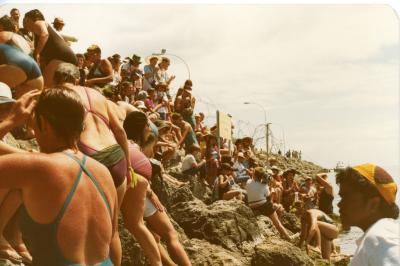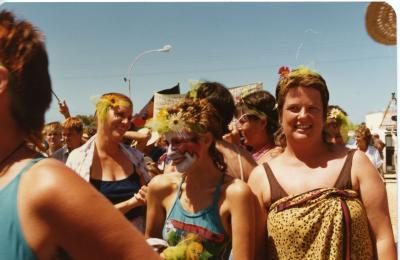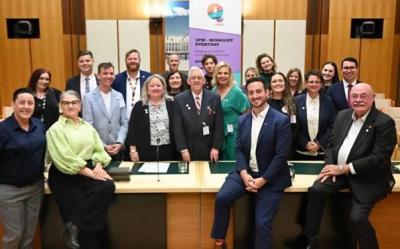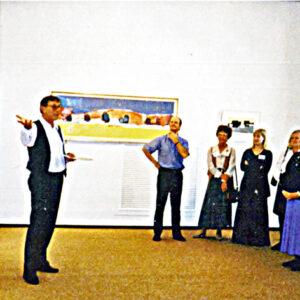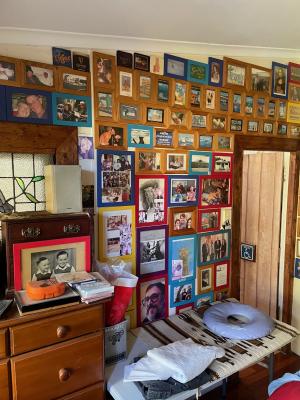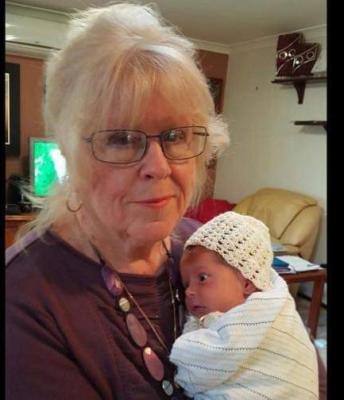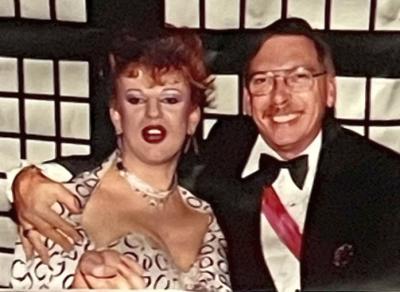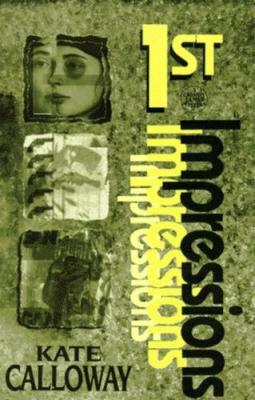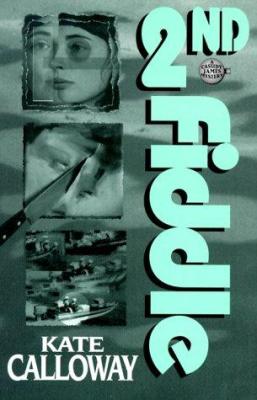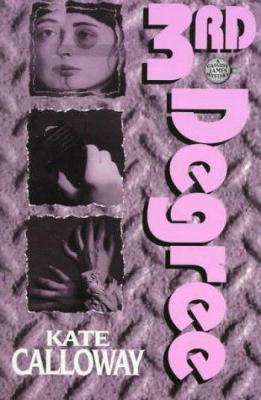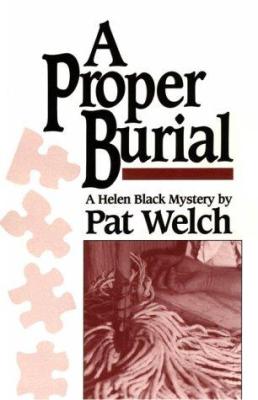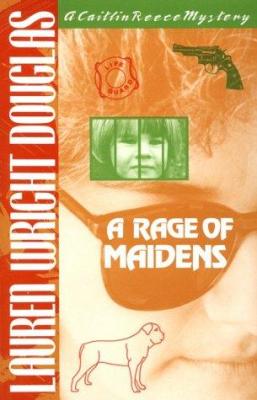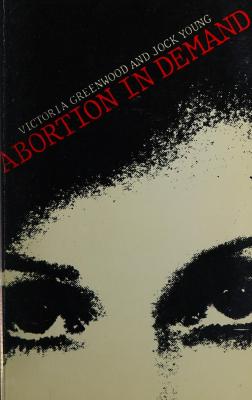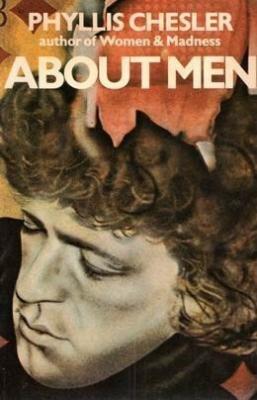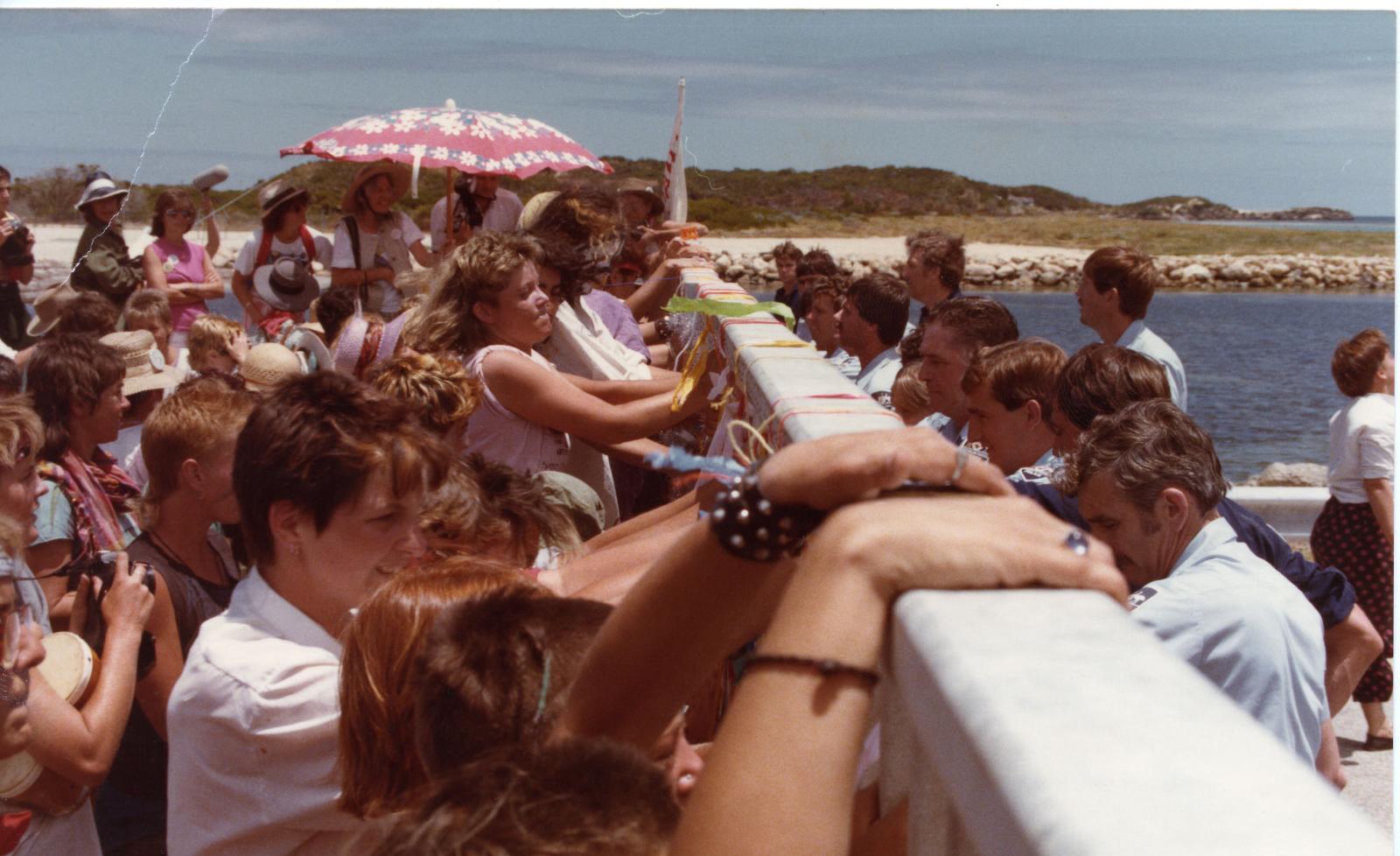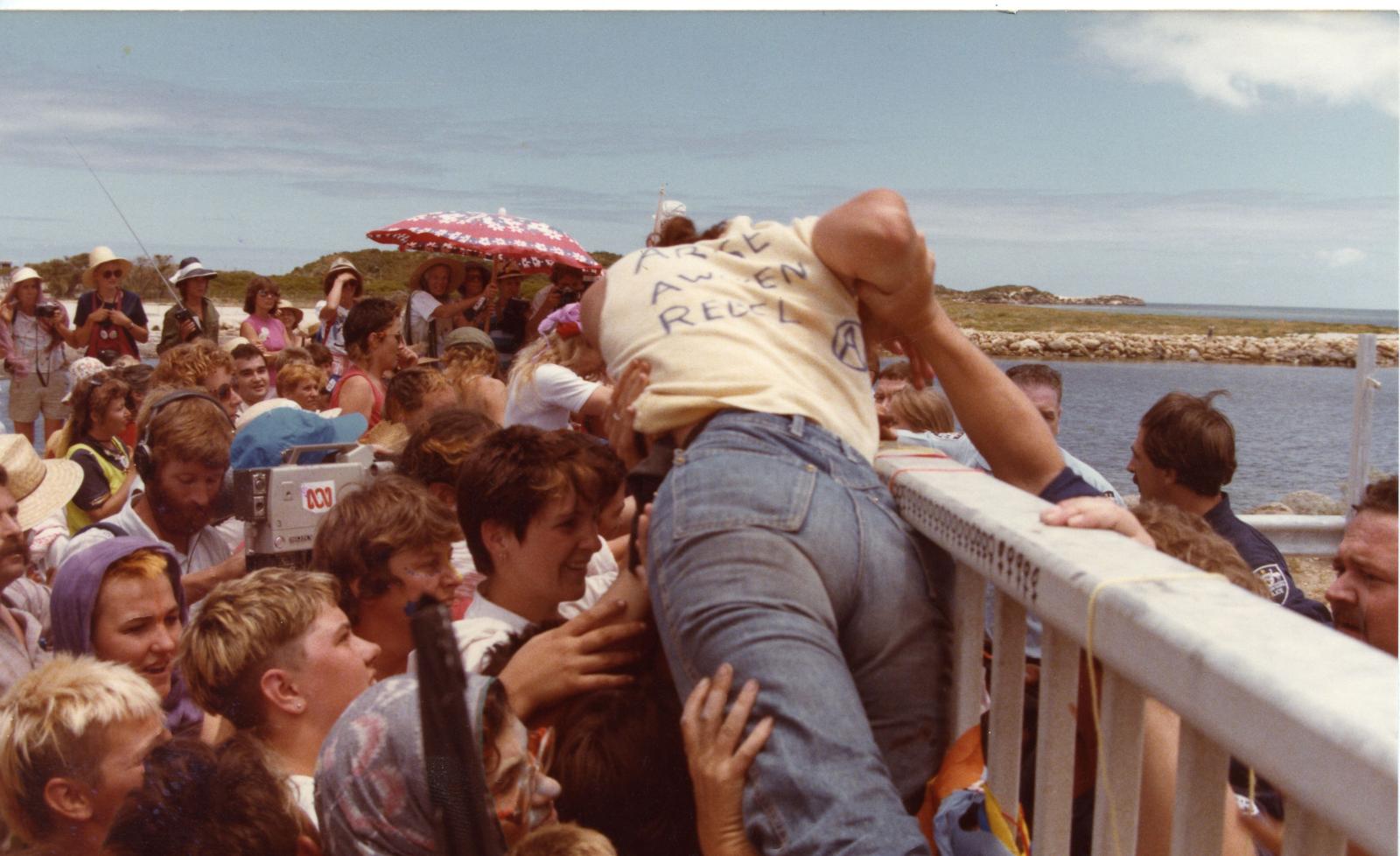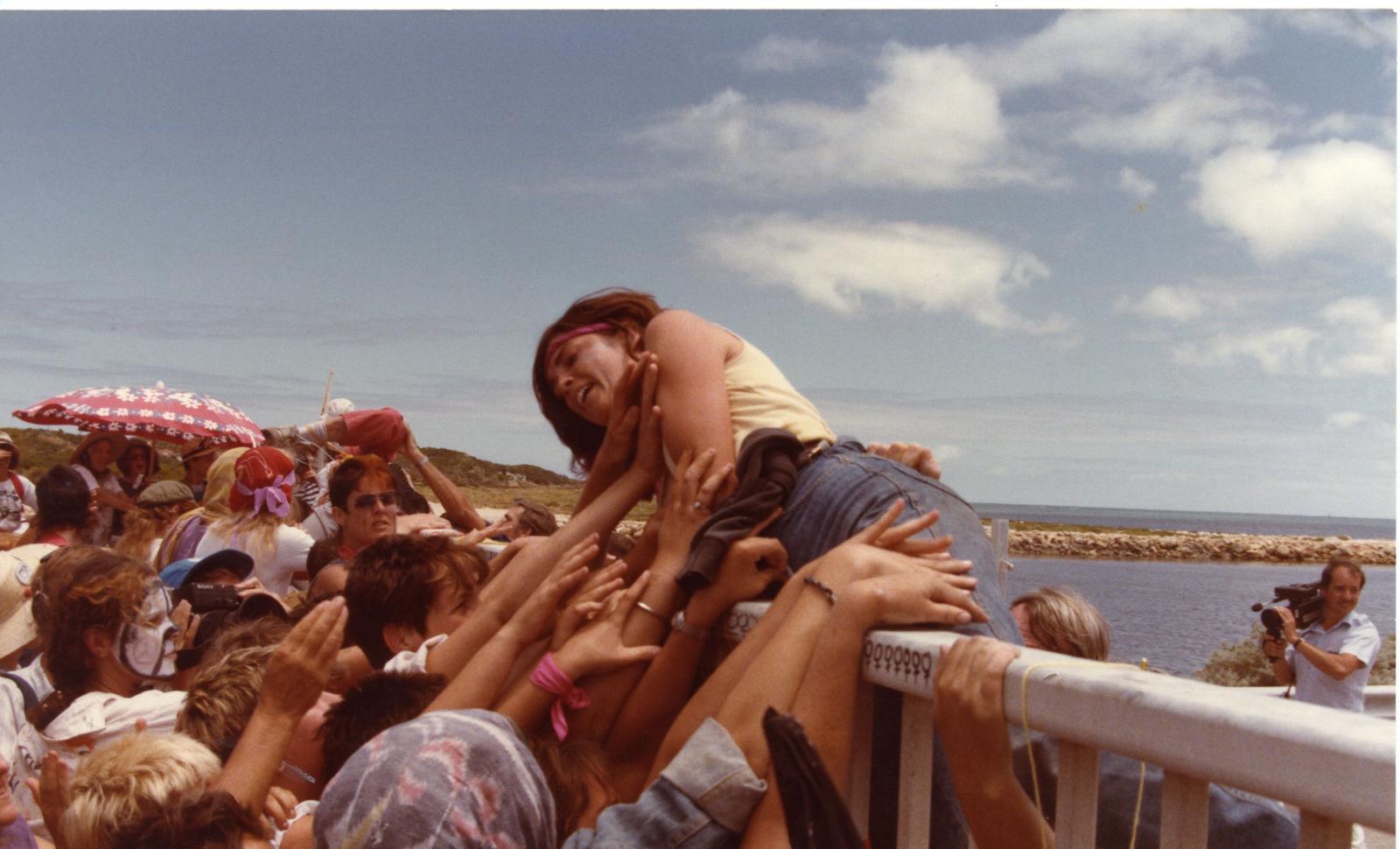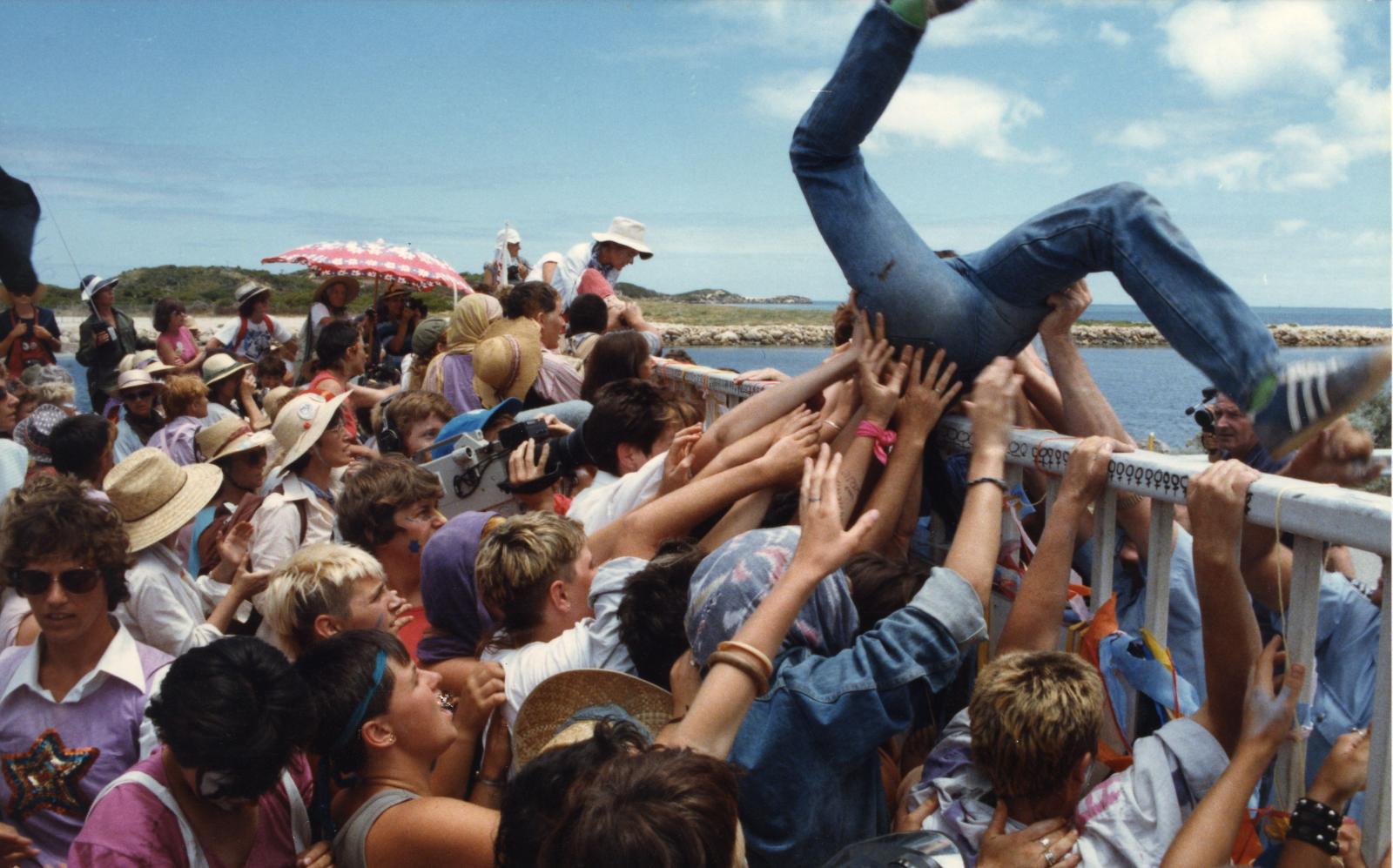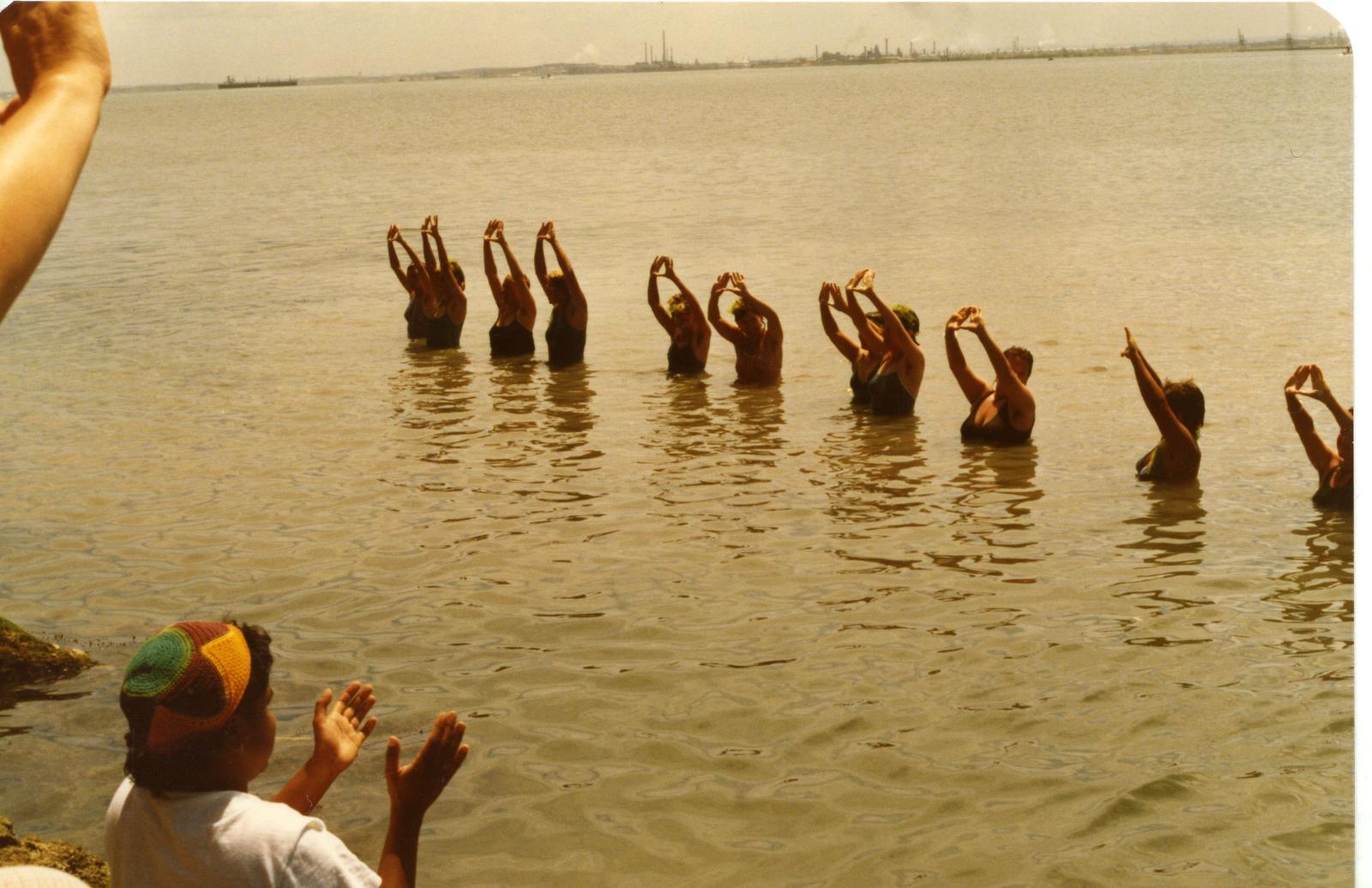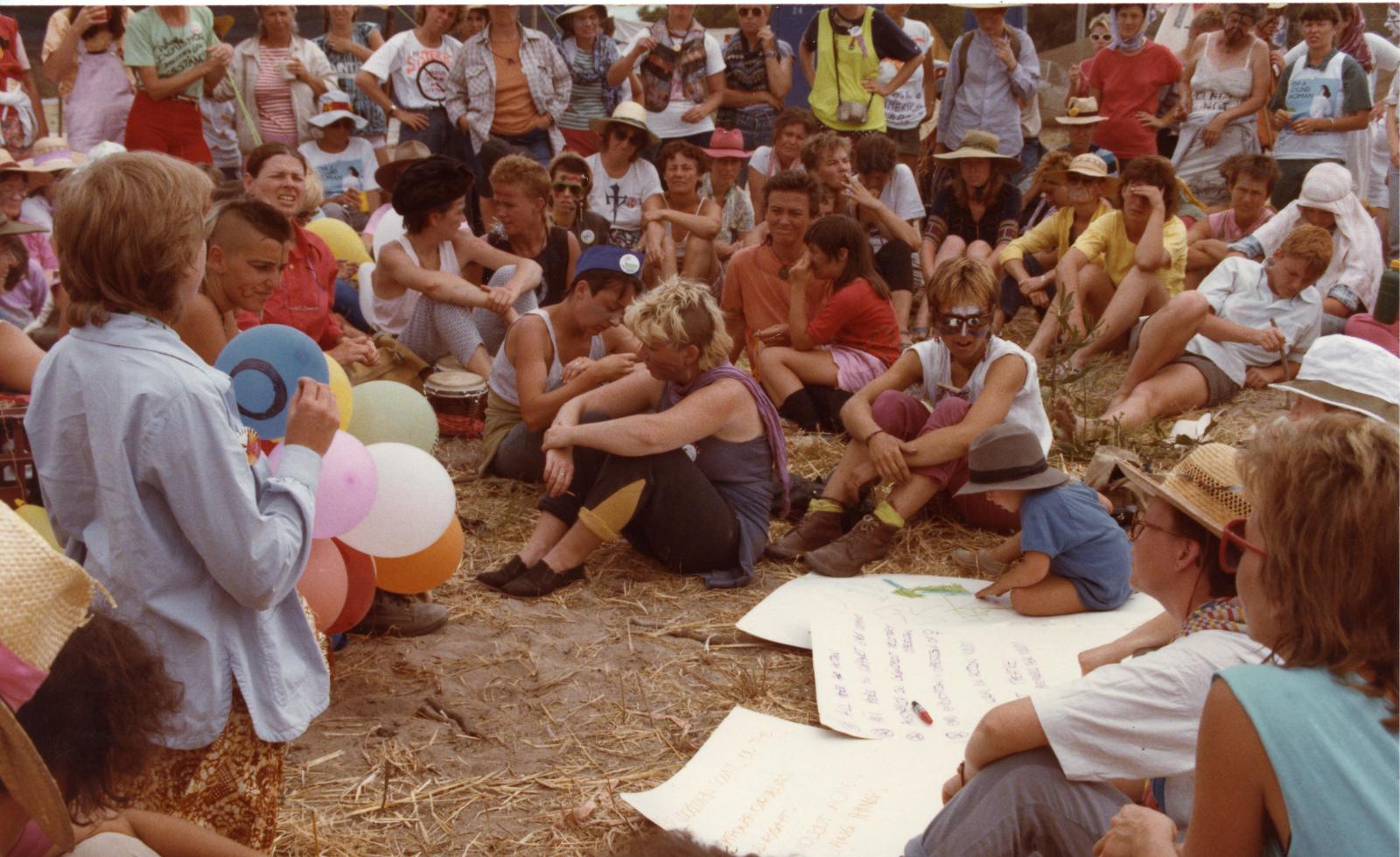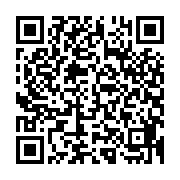Cockburn Sound Women's Peace Camp
1984Peace camp photographs
-1 Women protesters confront naval personnel at the gate to the HMAS Stirling Naval Base on Garden Island, WA
-2 A woman protester is helped to scale the gate to the HMAS Stirling Naval Base on Garden Island, WA.
-3 A woman protester is pushed over the barricade at the gate to the HMAS Stirling Naval Base on Garden Island, WA
-4 Women protesters in the sea at the causeway to HMAS Stirling Naval Base on Garden Island, WA. This was a ‘synchronised swimming protest action’- in defiance of being arrested in the water. Protesters were trained in 'non-violent action training' and this was one of their ‘actions’. Protesters were not supposed to cross the fence line into the Defence base- so they climbed down the groin and went into the water on the other side of the fence-line, knowing they were unlikely to be arrested in the sea. Other women from the Sound Women’s Peace camp watched them from the groin and shouted encouragement.
5 Women at a 'consensus decision making meeting' at the Sound Women’s Peace camp. Aboriginal land rights flag held by several protesters.
Liz Wood Collection
The Sound Wimmins Peace Camp or Cockburn Sound Women’s Peace Camp was an anti nuclear protest and an encampment for women only, held at the entrance to HMAS Stirling Naval Base, Garden Island, WA in December 1984. Inspired by Greenham Common women’s camps (UK) and a recent women’s camp at Pine Gap, NT, the year before, approximately 400 women came from all over Australia to join the camp.
“The 1980s presented new mobilisations of lesbian politics, particularly anti-war in focus. This politics was highlighted in the protests of Pine Gap and Cockburn Sound. Pine Gap focused on the US military apparatus near Alice Springs and featured a two-week sit-in… After Pine Gap, some women turned their attention to Cockburn Sound, creating the Sound Women’s Peace Camp to target the HMAS Stirling Naval base on Garden Island (1984).” 1
Harriet Steele, in her thesis: ‘Reading Community: Periodicals as archives for Australian lesbian public cultures 1970-2000’ (2024) states Cockburn Sound represents a transnational example of lesbian protest in Western Australia.
Sound Women’s Peace Collective (formed from Women For Survival, Sydney) and the WA group, Women’s Action for Nuclear Disarmament (WAND), played key roles in preparing this event. It was held in December 1-14, 1984 at Point Perron in Cockburn Sound, near the HMAS Stirling Naval Base on Garden Island and close to Fremantle where nuclear capable US warships frequently docked and utilized the services of local women for ‘rest and recreation’.
Lesbians played pivotal roles as activists, as non-violence trainers and in developing alternative ‘consensus decision making’ and operating in ‘affinity groups’.
This connection to the international peace movement is important, as this history may not be part of a stereotypical understanding of queer/LGBTIQ history. (Reece Plunkett 2024)
The local media often painted the women as wild lesbians: ‘Anti-nuclear protesters stormed the gates to Stirling… 200 painted, chanting women worked themselves into a frenzy and pushed comrades over the fence. 75 were arrested. On one side is the strong lesbian element, butch hairstyles and boiler suits, and on the other those who genuinely wanted a peaceful protest.‘ Dale Kerford, The Sound Telegraph, 12 December 1984
‘The Cockburn Sound Peace Camp was not just about anti-nuclear politics - for me, it was also about personal and sexual politics. One afternoon I was walking back to camp when a rock was thrown at me by a group of young guys in a car. It was a confronting moment. I wondered, “Do they hate me for what I'm trying to do, or do they hate me because they think I'm a lesbian?” At that moment I appreciated just how much a person's sexuality – or a person's perceived sexuality – can be used not only to dismiss that person but also to demonise them.’ Liz Wood, 2002 (Gay Museum)
Written by Jo Darbyshire, 2024.
Details
Details
QAPE0062: Donor, Date:23/06/2024 ELIZABTH WOOD (LIZ) DoB: 1957
Liz Wood Collection
A series of photographs taken at the Cockburn Sound Women’s Peace Camp, December 1984, by Liz Wood.
Elizabeth ‘Liz’ Wood and her twin brother Paul were born in Perth in 1957. Liz attended Brigidine College in Floreat Park, and worked in a prawn factory in Exmouth before studying Women’s Studies and Humanities at Murdoch University. She became a journalist with the West Australian newspaper for 6 years and also worked as media advisor for Greens Senator Jo Valentine, in Canberra and Perth, during the 1980s.
Her twin brother Paul worked as a cameraman for commercial television, and at the time of Cockburn Sound was on the other side of the fence filming the protest, while his sister took these photos.
QAPE0062: Photographer, Date:1984 ELIZABTH WOOD (LIZ) DoB: 1957
Liz Wood Collection
Open in Google Maps
Nearest geotagged records:
- Cockburn Sound Women's Peace Camp (0km away)
- Cockburn Sound Women's Peace Camp (0km away)
- World War 2, Western Australia, Fortress Fremantle, Challenger Battery, Garden Island Panana Mount for 155 mm GPF (Grande Puissace Filloux) gun (1.46km away)
- POSTER - Fortress Fremantle Graphic Letter Batteries (1.76km away)
- World War 2, Western Australia, Fortress Fremantle. Unites States Navy, USS Peary, Salvaged 4 inch gun (1.92km away)
